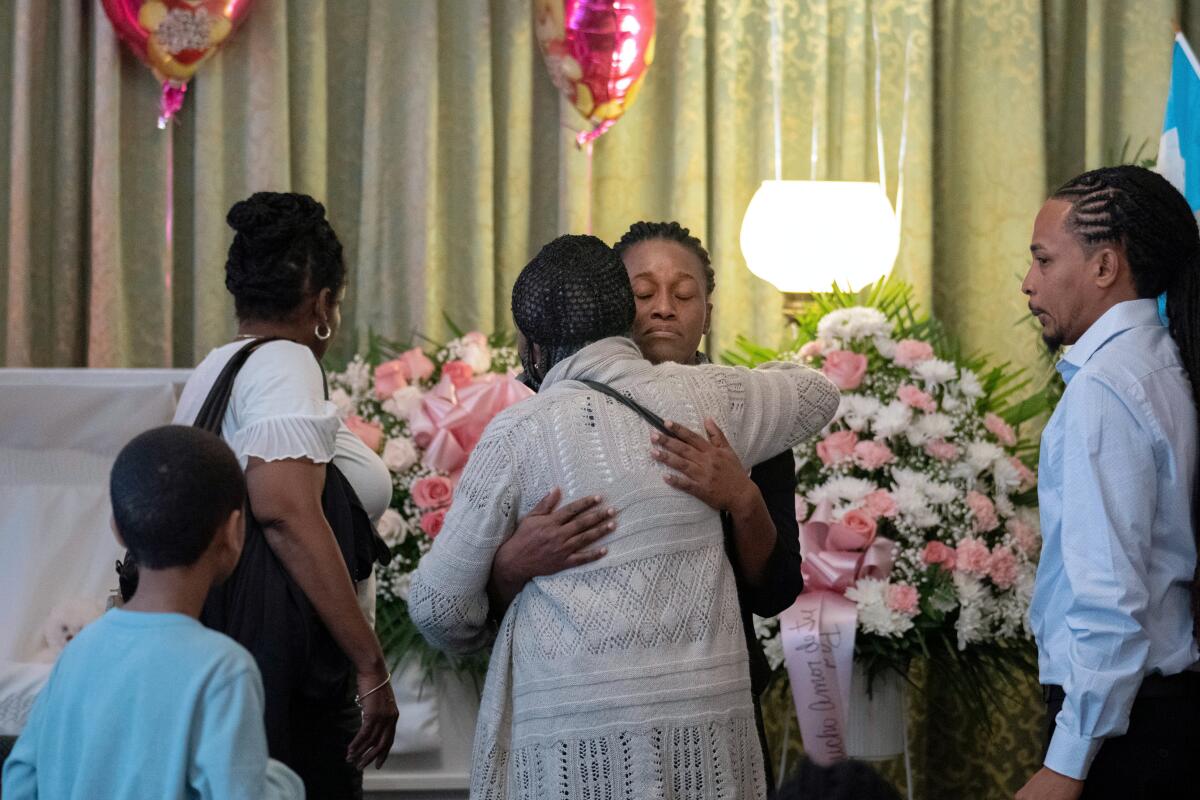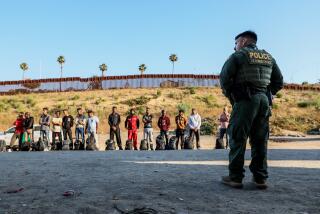Court monitor: 8-year-old’s death in Border Patrol custody caused by ‘series of failures’

A court-appointed monitor found that the death of an 8-year-old girl in Border Patrol custody was preventable and was the result of “a series of failures in the [Customs and Border Protection] medical and custodial systems for children,” according to a filing in federal court on Tuesday.
Anadith Danay Reyes Álvarez, who suffered from sickle cell and heart conditions, died in U.S. custody on May 17. She had initially been held in a border facility in Donna, Texas, before being transferred to another in Harlingen, Texas.
Her fever had spiked to 104.9 the day before she died. Her mother’s requests to send her to a hospital or get an ambulance to come to the Border Patrol facility in Harlingen were denied, according to a Homeland Security Department summary. The girl was eventually transported under custody to a hospital, where she died.
The report was filed Tuesday as part of a long-running case on the conditions for migrant children in custody. Monitor Paul H. Wise, a pediatrician and professor at Stanford University, made his assessment based on publicly available information and interviews, he wrote. He had previously briefly discussed the case with the Associated Press.
“Based on the currently available information, the death of [Anadith] was a preventable tragedy that resulted from a series of failures in the [Customs and Border Protection] medical and custodial systems for children,” he wrote. “The proximate cause was poor clinical decision-making by the health providers responsible for her care in the Harlingen [Border Patrol] Station on the day of [Anadith’s] death.”
Wise said his report was “focused on the systemic failures that permitted poor clinical decision-making by several health providers to result in a child’s death.” He said that “these failures occurred at multiple levels and should not be viewed as rare anomalies but rather as systemic weaknesses that if not remedied, are likely to result in future harm to children in ... custody.”
Wise noted that Border Patrol personnel were apparently not aware of the girl’s underlying medical issues and that it did not appear that physicians or a local health center were consulted about those conditions. He said that what happened in the Harlingen facility raised “a series of other profound concerns regarding not only the direct care she received but also the custodial and medical systems that failed to prevent [Anadith’s] clinical deterioration and death.”
Wise said it was not clear whether the medical providers in Harlingen were aware that she had sickle cell disease.
The court monitor said he could not judge why the health providers in Harlingen were “so reluctant to transfer” Anadith to a hospital, but he interviewed health providers in other areas.
Wise said these personnel said that Border Patrol officials “have, on occasion, questioned a medical provider’s decision to transfer a patient to a local hospital, stressing the drain on [the agency’s] manpower associated with escorting families or children to outside facilities.”
The Times previously revealed that an internal government report documented how officials at the detention center in Donna had complained about the facility’s “overuse of hospitalization.”
Wise stressed that his report did not include any information indicating that those complaints had played any role in the girl’s case.
Border Patrol “concerns regarding transfers of individuals to local health facilities are understandable; but to confront medical personnel with these concerns when a transfer is being contemplated is both inappropriate and dangerous,” he wrote. “The decision to transfer an ill individual to a local health facility should be based on medical criteria alone as determined by the appropriate medical personnel.”
Wise recommended that the government take a series of steps, including expediting the transfer of children out of custody; working with a pediatric advisor to monitor children in custody who have medical conditions; and communicating a statement to Border Patrol that only medical personnel are to make decisions on transferring children to health facilities.
Neha Desai, senior director of immigration at the National Center for Youth Law, which is suing the government over the care of children in custody, said the report was illuminating.
“Dr. Wise’s report clearly establishes that Anadith’s tragic and preventable death was the result of profound systemic failures. These fundamental system failures were compounded by callous indifference to Anadith’s suffering,” she wrote in an email.
Border officials have said that they are reviewing “medically fragile” migrants in custody and prioritizing them for processing.
“The death of eight-year-old Anadith Danay Reyes Alvarez was a deeply upsetting and unacceptable tragedy,” Troy Miller, acting head of Customs and Border Protection, said in an emailed statement.
“While we cannot change the tragic outcome in this situation,” he said, “as an agency, we must and will do better to ensure that this does not happen again.”
More to Read
Get the L.A. Times Politics newsletter
Deeply reported insights into legislation, politics and policy from Sacramento, Washington and beyond. In your inbox three times per week.
You may occasionally receive promotional content from the Los Angeles Times.











